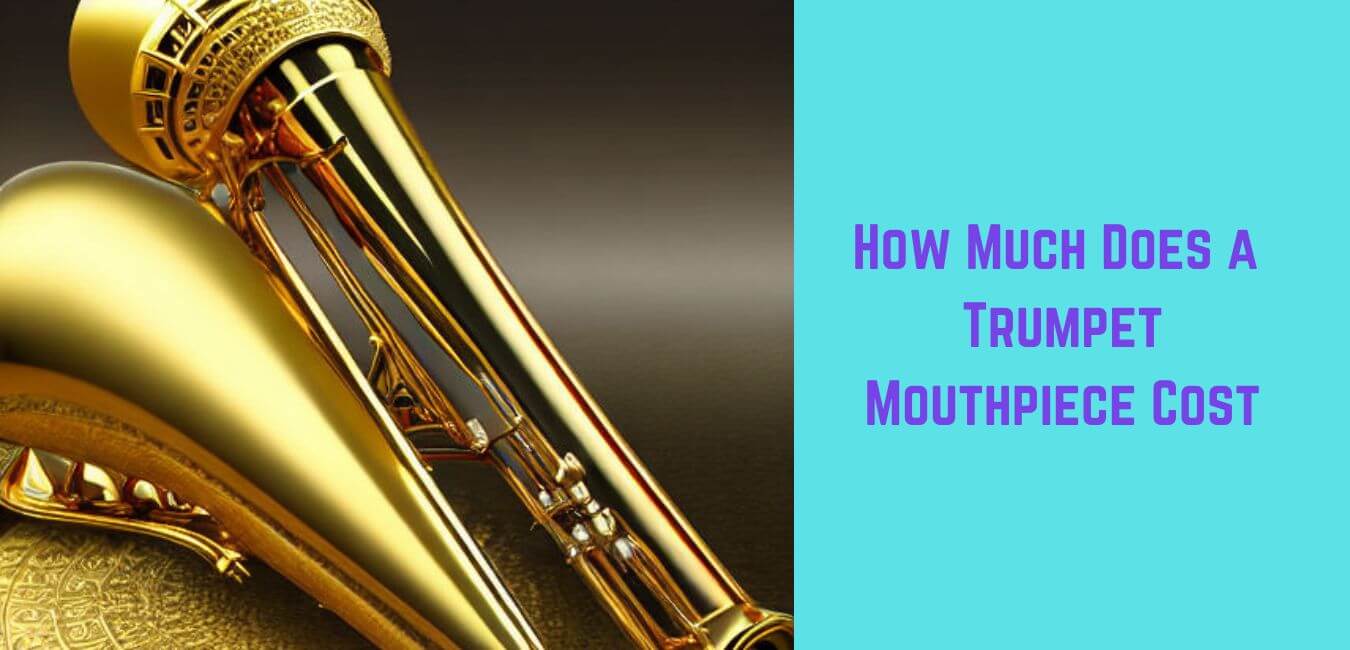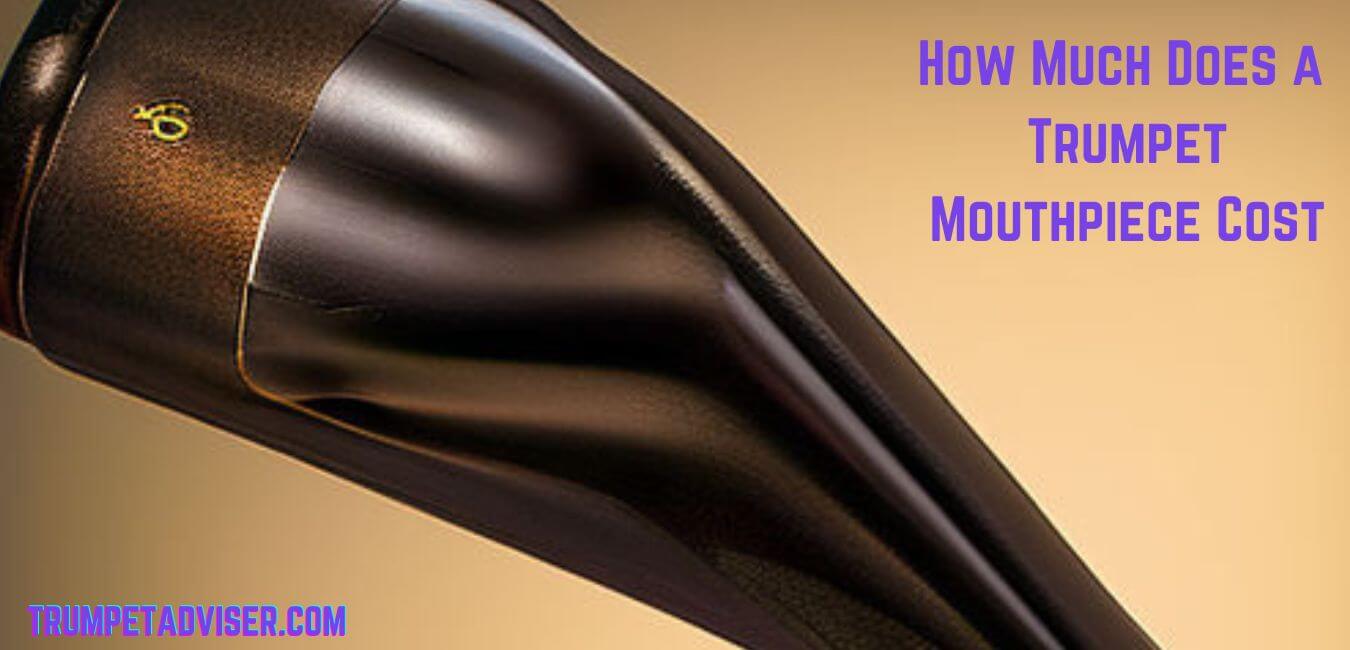A trumpet mouthpiece is a crucial component for any trumpet player and can have a significant impact on the sound produced by the instrument. Depending on the type of mouthpiece being used and the quality of the material it is made from, trumpet mouthpieces can range in price from around $20 to $250 or more.
Generally, a good quality basic model trumpet mouthpiece will cost anywhere between $30-$50. If you are looking for a professional-grade model, you should expect to pay between $80-$150 per mouthpiece.
Ultimately, pricing can depend on a variety of factors as there are many different types available with varying materials and features.
Different Types of Trumpet Mouthpieces
Standard-Depth cups:
These are designed for most general use and can vary in cup diameter from very shallow to rather deep.
Large-Bore Mouthpieces:
Ideal for beginners and those who require a larger opening in order to get a louder sound, these mouthpieces often feature larger throat openings with wider backbores and longer stems.
Medium Bore Cup:
These offer a slightly smaller bore than large-bore mouthpieces, allowing for an improved level of control over the sound while still providing enough room for maximum expression.
Small Bore Cup:
Designed specifically for more advanced players, small bore cups are typically used with light playing and allow you to achieve greater clarity and efficiency in tone production.
Symphony Cut Cups:
Featuring a V-style shape with flatter rims, symphony cut cups provide optimum support and accuracy when playing lower notes on the trumpet
Harmon Cup:
Designed for jazz players who need greater flexibility when it comes to their sound projection, Harmon cups feature a semi-bowl shape that offers increased freedom of movement without compromising any of the warmth and richness associated with playing the trumpet.
Factors That Influence The cost of a Trumpet Mouthpiece
Material
The material that a trumpet mouthpiece is made of is one of the main factors that influence the cost of the product. Brass and plastic are two of the most popular materials used in trumpet mouthpiece production, both offering their own advantages when it comes to playability and cost.
Brass mouthpieces tend to be more expensive than those made out of plastic due to their durability, weight, and ability to produce a full-bodied sound. While brass can offer superior sound quality, plastic is much lighter in weight which makes them more desirable for younger players or those seeking greater flexibility from their instrument.
Plastic mouthpieces also provide a brighter tone compared to brass models making them suitable for jazz-style playing. When shopping for a trumpet mouthpiece, consider what type of material you prefer as well as what type will best suit your needs.
Design
Design is a major factor in the cost of a trumpet mouthpiece. Manufacturers invest time and money into creating unique designs for their products, and that can increase the purchase price.
For example, a traditional design, such as an old-fashioned cup shape, will usually be more affordable than one with more intricate features like wide rims or deep throats. Some of these designs are created to meet specific playing needs or to suit individual players’ styles.
They may also include decorative elements that add to the overall cost. Unique materials also contribute to the cost of a trumpet mouthpiece. A brass model won’t be as expensive as one made from silver or gold-plated metal, while those crafted from hard plastics will typically be less expensive than handcrafted wooden pieces. Additionally, certain models may feature additional parts like caps that further increase their value and price tag.
Brand
When it comes to finding the right trumpet mouthpiece, one of the most important factors that can influence the cost is the brand associated with it.
A trusted name in brass instruments, such as Bach or Getzen, will usually cost more than a lesser-known name. Generally speaking, a branded mouthpiece tends to produce better sound quality and longevity when compared to an off-brand option.
The material used for crafting a trumpet mouthpiece can also affect its price tag. Silver-plated models are typically more expensive than those made from plastic or other less costly materials due to their superior craftsmanship and durability.
In addition, certain brands may use additional components such as gold trim or precious stones and gems which increase their value significantly. Finally, where you purchase your trumpet mouthpiece can have an effect on its overall cost.
Plating
When it comes to the cost of a trumpet mouthpiece, there are many factors that can influence the price. One such factor is plating. Plating refers to the thin metal layer that covers the brass of the mouthpiece and gives it a unique look or texture.
Depending on what type of plating is used, this can have an impact on the cost. Most basic trumpet mouthpieces come with plain brass finishes, which are relatively inexpensive due to their lack of embellishment. However, more expensive models will often feature gold or silver-plated finishes which add an extra layer of elegance and durability to the product.
Gold-plated models tend to be pricier than silver ones as they will require greater skill in production as well as higher quality materials in order for them to reach a standard suitable for professional use.

The Price Range for Different Trumpets and Their Respective Mouthpieces
Trumpets are versatile instruments, playing an important role in many musical styles from jazz to classical. While the same trumpet can be used for different genres, there is also a wide range of different trumpets and mouthpieces available.
Each instrument has its own unique features and sound, so it’s important to know the price range for each type before making your purchase. When selecting a trumpet or mouthpiece, the most important factor to consider is your budget.
Depending on the model you choose, prices can range from around $200 all the way up to thousands of dollars for professional-grade instruments. Student trumpets typically start at around $200 while intermediate models may cost up to $600 or more. For professional trumpets, expect to pay anywhere between $1,000 and $5,000 depending on the make and model you purchase.
Trumpet Mouthpiece Prices
- Student Level Mouthpieces: $7-20
- Intermediate Mouthpieces: $30-40
- Professional Level Mouthpiece: $50-$100
- Custom or Specialty Mouthpiece: $20
Common Materials Used to Make Trumpet Mouthpieces
Trumpets are a popular instrument used in many styles of music, from classical to jazz. While the main body of a trumpet is typically made from metal or brass, the mouthpiece plays an important role in producing sound quality and intonation.
Trumpet mouthpieces come in a variety of shapes and sizes, but they all share one commonality – they are generally made out of metal or plastic materials. Two well-known metals that are commonly used to make trumpet mouthpieces are brass and silver.
Brass mouthpieces offer the player a darker, more mellow tone with good projection while silver provides greater brilliance due to its brighter sound quality. Other metals such as copper and gold can also be used to create different tonal qualities but these are not as widely available as brass and silver.
Do all Trumpet Mouthpieces Fit all Trumpets?
Do all trumpet mouthpieces fit all trumpets? This is a common question among novice and experienced trumpet players alike. After all, it would be ideal if the same mouthpiece could be used across multiple trumpets. Unfortunately, this is not always the case as there are many variables that can cause issues with the fit of a given mouthpiece on any particular instrument. If you want to know more about all trumpet mouthpieces fit all trumpets, please check the article.
The primary issue at hand is that different instruments have different size receiver bores. These bore sizes determine whether or not a particular mouthpiece will fit onto the instrument properly. Generally speaking, larger bore horns will require smaller diameter mouthpieces and vice versa. Moreover, some brands of trumpet produce their own unique line of proprietary mouthpieces which may not fit other manufacturers’ instruments. As such, it’s important to discuss your needs with an experienced trumpet technician before investing in any new equipment.
How Long Does a Trumpet Mouthpiece Last?
Trumpet players must know when their trumpet mouthpiece is due for a replacement. A trumpet mouthpiece is essential for playing the instrument and without one, the trumpet won’t make a sound. Depending on how often you play, use, and take care of your trumpet mouthpiece will determine its lifespan.
Generally speaking, a high-quality trumpet mouthpiece can last anywhere from 6 months up to 10 years. The time frame of when to replace it can also depend on factors such as wear and tear due to heavy playing or improper cleaning.
To ensure that your mouthpiece lasts longer, be sure to clean it regularly with the appropriate materials and store it in an airtight container between uses.
Additionally, check the metal parts of your mouthpiece for signs of corrosion or damage periodically so you can have it replaced before any major problems occur.
Conclusion
The trumpet mouthpiece is a critical component of the instrument and can make or break its sound. While there are many different materials used to construct trumpet mouthpieces, some of the most common are brass, silver, and plastic.
Each material has its own unique characteristics that offer different benefits for players when it comes to creating the desired sound. Brass is a popular choice due to its affordability and ability to project sound well. Silver is another great option as it offers a brighter tone than brass but tends to be more expensive.
Lastly, plastic trumpet mouthpieces have made their mark in recent years as they provide an affordable way for beginners to get started with playing the trumpet while offering relatively good tone production quality compared to other materials. Overall, each material has its own advantages and disadvantages when it comes to making a trumpet mouthpiece.
Related Post: How to remove a stuck mouthpiece from a trumpet

Welcome to my blog! My name is Marjona Ferdows and I am a passionate trumpet lover. I have been playing the trumpet since I was a child, and it has always been one of my greatest joys in life. My blog is a place where I want to share my passion for the instrument with all of you. Here you will find articles about using the trumpet, tips and techniques, reviews on different models, and more.

